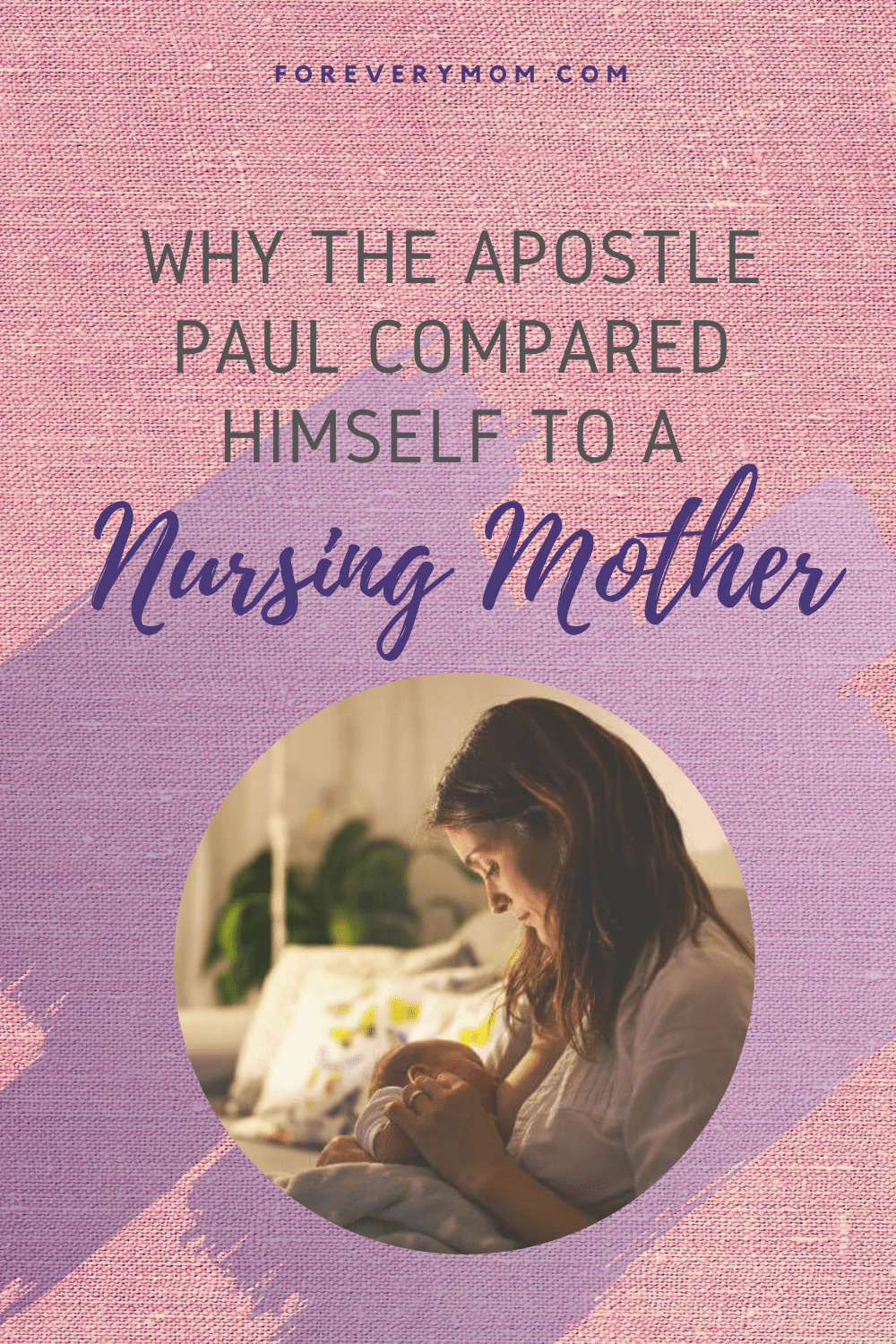Somehow this was something the apostle Paul understood. When we serve people, we have to make sure we’re getting our spiritual nourishment first, before we can pass anything of value on to them. Living and working among the continual, desperate needs of other people can physically and emotionally deplete us. And sometimes other people’s needs interrupt our planned and preferred schedules. Paul knew all this. He lived all this. At the same time, Paul felt incredible affection for the Thessalonians. Paul, Silas, and Timothy loved them so much that they shared not only the good news with them, but their own lives as well (verse 8). And they’d spent plenty of time praising them in the chapter before.
Over the past few months I have been unable to let verse 7 go. I’ve learned that in the Greek, the noun was unmistakably feminine. It was trophos: a care-giver, a person sustaining someone else by nourishing and offering the tender care of a nurse. I’ve learned that it had the connotation of mother’s care, of holding a child close, wrapped in her arms. There is familiarity here. Affection. Tenderness. The verb was thalpo: to cherish, nourish, foster, comfort, nurture, or keep warm. There is action here, decision, deliberate investment. And the phrase “her own children” (heautou teknon) indicates belonging. An inclusion. A turning towards.
All of these feminine-sounding words can illuminate our own roles, wherever God has placed us. They are not weakness. They are not unnecessary or irrelevant or dispensable. They are strength and they are resiliency and they are essential. Whether or not you’ve ever been a nursing mother, you have a yearning for relationship that can solidify your ministry, not undermine it. Whether or not you’ve ever been a nursing mother, you have an instinct to care for people sacrificially. Whether or not you’ve ever been a nursing mother, you have the capacity to lead with endurance.
Paul wasn’t ashamed of these qualities, and neither should we be. It is good and healthy to identify as a woman and serve out of our God-given identity. Of course, men can be nurturers too – just see verse 11. And women can be warriors – just see Deborah. But when I read these verses, I feel so much validation. Validation of my work and validation of my worth. All those years living and ministering as a woman, they weren’t wasted. And as someone who has had a fraught relationship with the Apostle Paul over the years, these verses are yet one more reason I can love both him and his letters, for he wasn’t afraid to lean into the feminine for the sake of the people he was serving. It is something we needn’t be afraid of either.
What has serving out of your feminine strength looked like in your life? What other female images used in the Bible encourage you?


